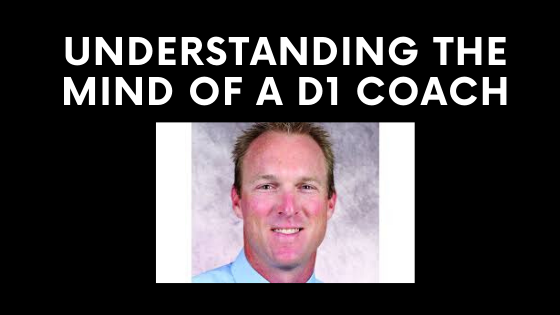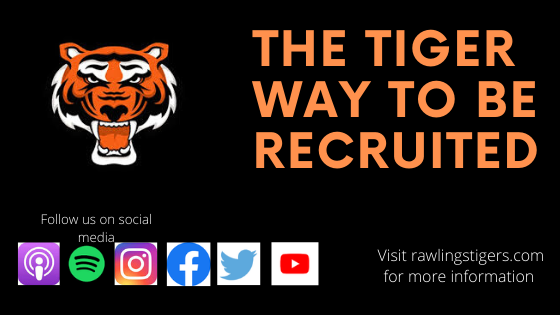
Spiker Helms got the chance to sit down with former University of Nebraska-Lincoln’s head baseball coach Darin Erstad. They discuss the recruiting process and what he looks for when recruiting for a player. Before his time with the Cornhuskers, Erstad spent 14 years playing professional baseball for the California/Anaheim/Los Angeles Angels, Chicago White Sox, and Houston Astros. This article by itself will not only help you in recruiting but help you have an edge on your competition.
Spiker Helms: Hi everybody, welcome back to another edition of Tiger TV. I’m your host, Spiker Helms. I’m here at the University of Nebraska with head coach Darin Erstad. Thank you, Daren, for coming on.
Darin Erstad: My pleasure
Spiker Helms: I appreciate it so much. Guys, if you look back at previous episodes, we have episodes with the University of Iowa, Missouri State. Go back check those out. Also follow us on Instagram, Facebook, Twitter, all the social media platforms. So, with that said, let’s head right into it.
Question 1: So, coach, at what point do you start recruiting a player?
Darin Erstad: Well it depends. You know, unfortunately, it’s getting earlier and earlier. I’m not watching sixth and seventh-grade games yet, but you know it’s getting into that. When they’re freshmen you start building your database, start building relationships, and getting guys on your radar. Very very special cases maybe you all will offer some at that age, but as you get into your summer before your sophomore year and start to get evaluated a little bit harder, start making unofficial visits, and then it can ramp up as a 10th grader. We know some are a little bit later, and they’ll come in as juniors in the late bloomers. We always save room for a little bit of that and you know it’s just a matter of building your database and finding out who’s interested in your university and then getting to know the people. I think that’s the biggest thing right now is getting to know the kid, getting to know the family, what they’re all about, but we do start that at a very young process.
Spiker Helms: Developing that relationship.
Darin Erstad: No doubt about it. That’s what it’s all about.
Question 2: So, how many times does it take you to see a player on the field before you say “Hey, we want you to come on campus. Take a look around.” How many times will it take?
Darin Erstad: It could be one, could be ten. You know there are guys you see right away. You’re like that skill set plays the motor plays, you see that. Then there are other guys you watch you’re like, we have to see you then you watch them again. Then they grow, and well I better see that one more time. And then it grows on you again. So really every case is a little bit different, there’s not exactly one template you follow with every single kid, but the more you can see them, the better.
Question 3: And then, so kind of take you back to your high school days and say, if you are a high school guy right now. How would you approach a career?
Darin Erstad: Let me dust off the yearbook, that was a long time ago. You know, the one thing that I see that I think is very valuable is kids doing their homework. When you get the general email, let me tell you the truth, I get rid of those things. When I get 5080 of those a day, I mean it’s just it honestly it’s when those that catch your attention, that kid actually looked us up. That kid actually had made some connection and really did his homework on the school. Now I’m not just talking baseball I’m talking something within you know the academic part of it more or just Husker nation in general or, you know, just looks like it kind of catches your attention. So, I would have made a personal, I would have really done my homework and found what schools were really on my list, what do they have that I want, what do they have that is something I could see myself spending three, four or five years, whatever it is. And that’s what I would have done, and maybe those schools don’t like you. But you gotta start at the top just like when you set goals and you chase your dreams, go for the highest one man. And then if it doesn’t work out, you can always find different things to go to, but just for me, it’s all about a personal level, just like we want to get to know them personally. Well, the best way to do it is to reach out.
Question 4: So, it’s just it’s developing that one to one relationship just trying to get in the door and I mean camps you think camps are helpful?
Darin Erstad: It can, you don’t have to necessarily do and be nice to do, but it’s not a priority for us, but if somebody does it, it doesn’t hurt, that’s for sure. But what I always want to do is I want to find out about those kids, two, three years before they even come to campus and find out who they’re all about. Get to know them so when they get here, two weeks, two months into it, they’re like, that’s pretty much we signed up for we both know each other. And when you do that, that’s when you can have really meaningful relationships because you start building that trust earlier.
Question 5: That’s a perfect segue. So, when you are saying that talent is completely
equal across the board. When you’re looking at a player like what character traits, do you look for, and then how do you find those?
Darin Erstad: Well, you get to know you talk to their parents. You know, you get to know mom and dad, but there’s not a mom and daddy get to know whoever’s taking care of you find out from their coach and you talk to area scouts, you get as much information as you can. But for me, I want to find that person gonna do the right thing all the time. Are the kids gonna make mistakes? Of course, they’re gonna screw up their kids as part of the deal. But when you can see that they have the teammate’s best interests at heart, and they’re trying to get better every single day that comes up. I can look in their eyes, and you can see that fire you can see that desire, but when there’s a lot of “I’s”, being talked about why did this I did that, I look for the guys that say “we”, “we did this we did this”, “our team”, little words like that make a big difference in your talks.
Spiker Helms: That’s crazy sort of just like conversation like everyone looks good, but then those little details that you’re looking for.
Darin Erstad: Absolutely that changes and you can see what their priorities are in a heartbeat.
Question 6: What is the best advice you’ve ever received as a player?
Darin Erstad: Be yourself. It’s so simple, but it’s the truth. We try to please so many people who try to please college coaches, we try to please scouts, we try to please everybody. Now, please yourself, be yourself. This whole journey of life from high school to college, you’re trying to find out who you are. And if you don’t, if you’re always trying to please other people, you’re going to never find out who you really are. And for me, that’s the best thing I ever did. And when you do that, you know that you’re just gonna go out and give it everything you have. And the only thing you have to do at the end of the day is look in the mirror and know you gave it everything you have every single day. It’s not what somebody says to you, a good job or bad job, you just have to be able to put your head on your pillow overnight knowing that you emptied the tank. When you do that, that’s the best thing you can do, and it frees up so much stuff in your life because you just know you’re gonna get the most out of your abilities. If it is Juco, NAIA, Division One, two or three, or all you just play high school baseball that is fine, but one thing you don’t want to have at the end of all this is regret. Most kids will have regret because while I wish I wouldn’t have done that, or I wish I would have done this. No just empty the tank. Just be yourself and have fun.
Spiker Helms: Coach it was a pleasure.
Darin Erstad: My pleasure Spiker.
Spiker Helms: Awesome interview. Guys, check out Nebraska, their schedule, I will link it all down in the show notes as well thanks again coach, and we’ll catch you later. See ya.
If you would like to watch this interview in its entirety you can subscribe to our YouTube channel and watch it here:
In an article written in June 2019 by Baseball America, Darin Estrad had stepped down as head coach after seven years. The article also discusses how he helped turned the program into a success for years to follow.
https://www.baseballamerica.com/stories/darin-erstad-steps-down-as-nebraska-coach/
If you want a further in-depth look into college recruiting with strategies on getting noticed. Please listen to the below episode of our podcast.

